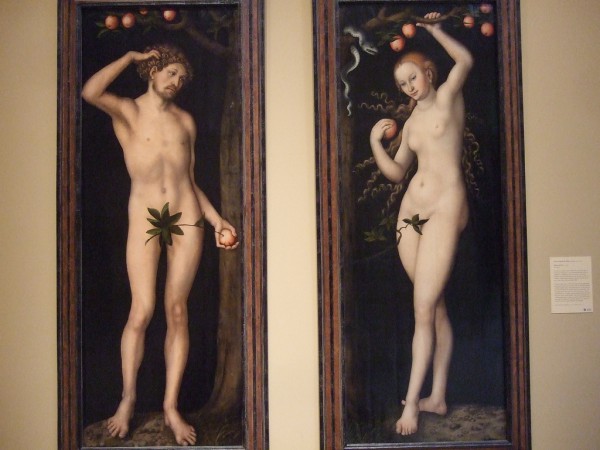Art World
In Stunning Decision, Court Awards Museum Nazi-Looted Cranach Paintings
The complex case has lasted nearly a decade.

The complex case has lasted nearly a decade.

Amah-Rose Abrams

In a stunning decision, a California judge has decided in favor of the Norton Simon Museum, dismissing a claim made by Marei von Saher, the heir of Dutch collector Jacques Goudstikker, for Adam and Eve (c.1530), a pair of paintings by Lucas Cranach the Elder. The restitution case has spent nearly a decade in the courts.
Judge John Walter ruled on August 15th that the Goudstikker family had not met the requisite filing deadlines for an ownership claim on the paintings, according to the Art Newspaper.
“The Norton Simon takes seriously the fiduciary responsibility to the public that our ownership of such important artworks confers,” the Norton Simon Foundation said in a statement. “We have placed the panels on near-constant public display since 1971 and will continue to ensure they remain accessible to the public for years to come.”
Jewish collector Jacques Goudstikker was forced to sell the paintings in question to Nazi leader Hermann Göring during World War II. Goudstikker had bought the works, which had been put up for sale by the Soviet government, at auction in Berlin, in 1931 before feeling Germany for the Netherlands, which fell under Nazi occupation in 1940. It was then that he was forced to make the sale to Göring; the works were returned to the Netherlands once the war had ended.
“Obviously, Ms. von Saher is disappointed with the court’s decision, and she intends to file an appeal,” said Larry Kaye, of New York firm Herrick Feinstein, in a statement to artnet News. “Over the many years that she has sought justice for the theft of Jacques Goudstikker’s property by the Nazis, Ms. von Saher has been gratified by her many successes, especially when those in possession of her artworks have done the right thing and returned the works to her without her having to resort to litigation. Indeed, Ms. von Saher firmly believes that amicable negotiations are the best way to handle Nazi-looted art claims and has resolved dozens of claims with private individuals, galleries and museums on that basis. Despite the fact that she has been met with resistance in this case, she remains undaunted and is optimistic that she will prevail in the end.”
Desi Goudstikker, Jacques’s widow, was given the chance to make a claim on the paintings after the war, but never went through with the procedure, as she felt it would not be carried out fairly.
Then, in an unexpected turn of events, the previous Russian owners, the Stroganoffs, made a claim on Adam and Eve. In 1961, the then-exiled George Stroganoff claimed that the Cranach paintings, as well as a Rembrandt and a Petrus Christus, were taken from his family following the Russian Revolution.
Goudstikker’s heir Marei von Saher, however, claims that the paintings had been taken by the Bolsheviks from a Church in Kiev.
The Dutch government sold Adam and Eve and the Petrus Christus to Stroganoff for 60,000 guilders in 1966, after he had relinquished any claim on the Rembrandt. A few years later, in 1971, American collector Norton Simon bought Adam and Eve from Stroganoff for $800,000.
The Pasadena Museum of Modern Art was renamed after Norton Simon in 1975 and received his collection, including the Cranach paintings.
Von Saher has been pursuing a restitution claim in US federal courts since 2007, but the fact that Desi Goudstikker never made a claim on the painting has always been used against her.
The fact that the case was even heard after so much time has passed and the events occurred in so many different countries is remarkable in itself.
“There’s no disputing the actual provenance,” said E. Randol Schoenberg, a lawyer for Von Saher, speaking to TAN. “If these paintings never go back, there’s a real problem in how we deal with Nazi-looted art.”
Von Saher plans to appeal the US District Court’s decision.